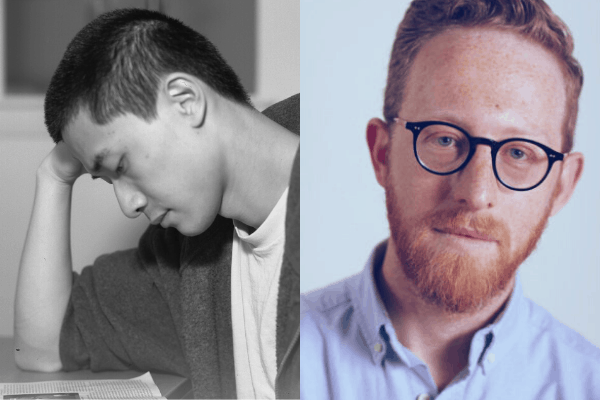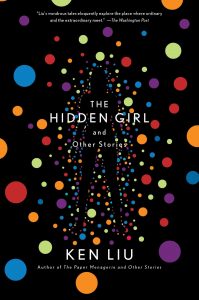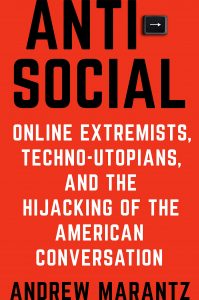PEN Out Loud Talks: Ken Liu and Andrew Marantz
In advance of their PEN Out Loud event on March 3 at the Strand Bookstore, Ken Liu (The Hidden Girl and Other Stories) and Andrew Marantz (Antisocial: Online Extremists, Techno-Utopians, and the Hijacking of the American Conversation) spoke with us about their writing process, the importance of freedom of expression, and books we should be reading.
Ken Liu

1. Why do you think it is valuable for writers to be in conversation with each other about their work and current events through series like PEN Out Loud?
Writers have always been in conversation with readers and each other as part of the community of literature. Though writing is a solitary activity, the process by which fiction is interpreted is, for both better and worse, at least partially collective and interactive. Public discussions for fiction serve fundamentally different purposes than discussions for nonfiction, and should be understood as such to benefit both writers and readers.
2. What does PEN America’s work defending freedom of expression mean to you?
The freedom to tell the stories we want to tell is sacred. We do not live in a world in which we are free to exercise that right; I hope someday we will.
3. What does a typical writing session look like for you?
So far, I haven’t had a typical writing session yet! I hope the trend persists so that I can continue to surprise myself.
“The freedom to tell the stories we want to tell is sacred. We do not live in a world in which we are free to exercise that right; I hope someday we will.”
4. What behind-the-scenes snippet in your life would probably surprise your readers the most?
I’d like to think: everything. Readers should never think they know an author through their fiction—that never goes well.
5. What are five books you suggest for recommended reading?
My favorite exercise is to ask everyone to recall five books that they loved from their childhood and go back and reread them. Which ones continue to stir the heart and engage the mind? Which ones have lost all their charm? Which ones now seem to tell an entirely different story than the story that you took away as a child? I find the exercise to be as instructive as any in revealing the meaning of every book to be a collaboration between the reader and the text. The text has not changed between the time when you were 5, 15, 25, and 50, but you have (one always hopes for the better, but…).
Andrew Marantz

1. Why do you think it is valuable for writers to be in conversation with each other about their work and current events through series like PEN Out Loud?
In the best of times, writing is what makes us fully human. In the worst of times, writing is what keeps us fully human.
2. What does PEN America’s work defending freedom of expression mean to you?
Everything else depends on our basic freedoms, and PEN has never forgotten that.
3. What does a typical writing session look like for you?
Any surface near an outlet can be a writing desk. Quiet is nice, but quiet isn’t always possible. That’s why god invented headphones.
“In the best of times, writing is what makes us fully human. In the worst of times, writing is what keeps us fully human.”
4. What behind-the-scenes snippet in your life would probably surprise your readers the most?
Instead of doing all my interviews myself, I usually just send my New Yorker caricature in my stead. Or my bitmoji.
5. What are five books you suggest for recommended reading?
I’ll recommend five recent books by colleagues, all of them great: Uncanny Valley, Say Nothing, I Like to Watch, Trick Mirror, and These Truths.






